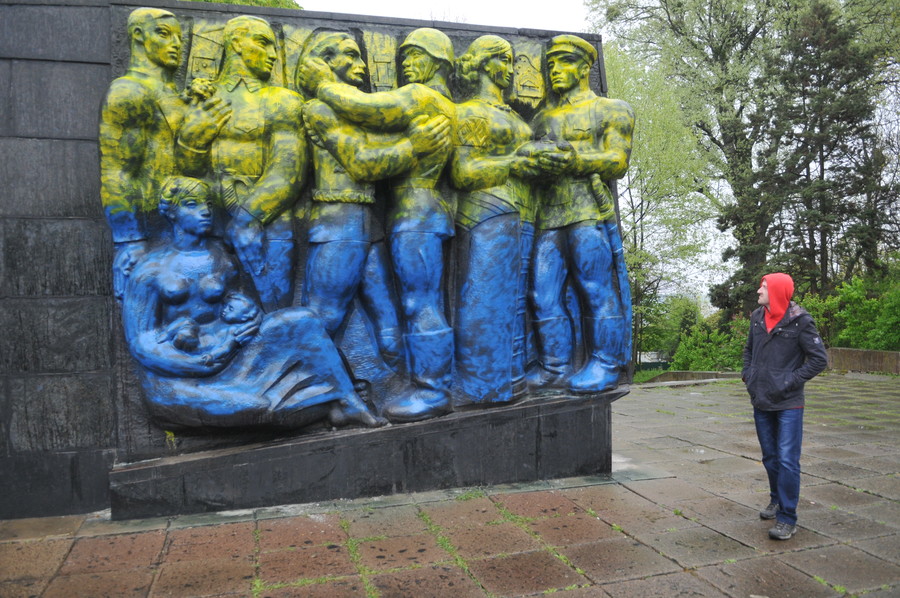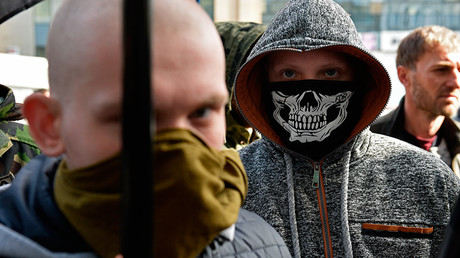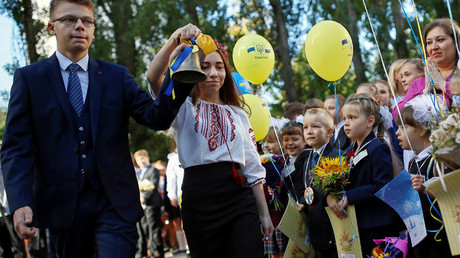The "moratorium" is to remain in place until there is "a full de-occupation of Ukrainian territory," practically making it a permanent ban.
Related: Washington Was Behind Ukraine Coup: Obama admits that US “Brokered a Deal” in Support of “Regime Change”
The ban is the latest in a long string of attacks on the Russian language in Ukraine, where it continues to be the largest minority language, used by millions in daily life, despite years of antagonism with Moscow.
Last year, the government imposed harsh quotas on broadcasters, requiring no less than 75 percent of their content to be in Ukrainian. Dozens of Russian books, films, and TV series have been banned for things like showing Russian law enforcement officers in a positive way (therefore, there are no more Russian crime dramas in Ukraine).
People using Russian may also face harassment in Ukraine. Speaking Russian in the Ukrainian parliament is usually met with angry shouts from "patriotic" MPs and discouragement from whoever is presiding at the session. One representative last year was simply barred from ending his speech, even though he was not fluent enough in Ukrainian to meet to the demands.
There is also a lot of pressure to abandon the Russian language on the public level. More outspoken figures like writer Larisa Nitsoy or former MP Irina Farion regularly share their latest outrage over how schools teach children too much math and physics and too little Ukrainian literature, or say that speakers of Russian should not have access to education or jobs in Ukraine. But there are those with less extreme rhetoric working to make Russian undesirable.

After splitting from the Soviet Union and becoming an independent state, Ukraine faced similar problems as its government tried to establish a new national identity for its people.
The 2014 armed coup in Kiev and subsequent conflict with Russia brought the nationalist agenda to the forefront in Ukraine. In fact, one of the first acts of the new leadership was to scrap a language law which guaranteed a special regional status for Russian. This was a major factor in the pushback that arose in the east of the country, which led to a rebellion and the current frozen conflict.
The pursuit of language superiority brought Ukraine into conflict with other neighbors last year when it passed a new education law, under which the right of Hungarian, Romanian, Bulgarian, and Russian minorities to have their children taught in their preferred language was seriously undermined.
The countries involved were outraged, with Hungary going as far as pledging to undermine any attempt by Ukraine to have closer ties with NATO. So far, Bucharest has been delivering on its threat.
Source: https://www.rt.com/news/438852-ukraine-russian-culture-banned/
Latest news:
- ‘I don’t have an attorney-general’: Trump slams Sessions in Oval Office interview
- [Video] Noam Chomsky on the historical origins of Christian Zionism, and why the US so fervently supports Israel
- Ukrainian region bans 'Russian-language cultural products' in public spaces
- Israel’s Failed Attempt to Start WWIII Is the Beginning of the End in Syria
















 Liberteon
Liberteon